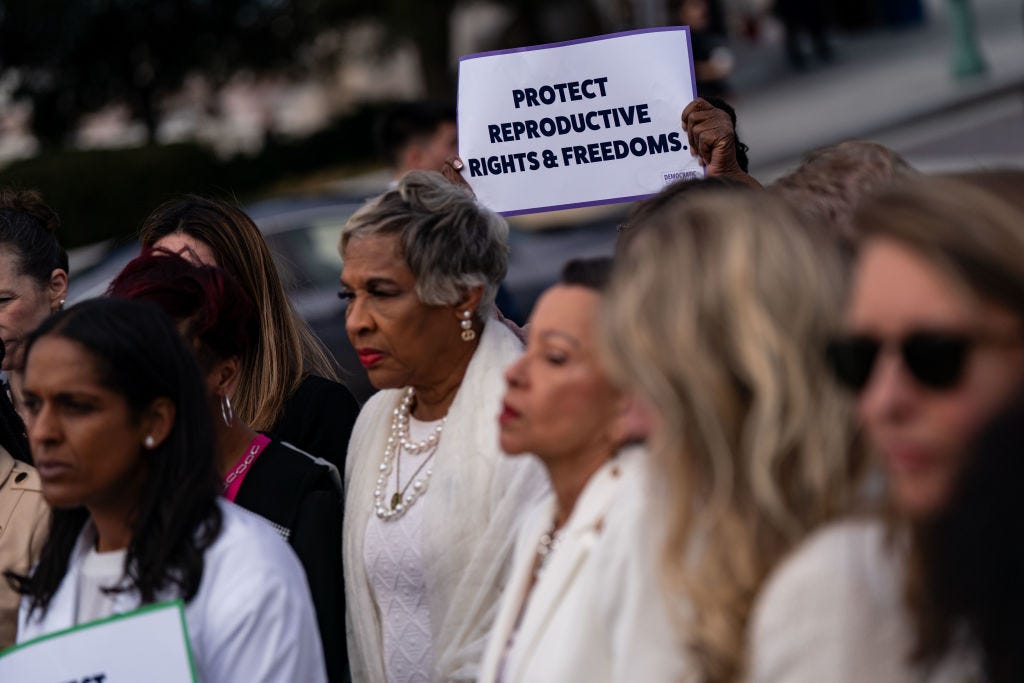A matter of life and death
Journalist Shefali Luthra on what she learned talking about abortion with patients and providers across the U.S. and how to understand the unfolding legal battle over reproductive freedom
Yesterday marked the second anniversary of Dobbs v. Jackson Women’s Health Organization, in which the Supreme Court overturned the 1973 Roe v. Wade decision and with it the constitutional right to abortion.
Since Dobbs, 21 states have banned or restricted abortion to earlier in a pregnancy than had been allowed by Roe, while an uncertain patchwork of laws has access not just to abortion services, but to reproductive healthcare in general. Right-wing activists have moved against IVF, mifepristone (the medication used in the majority of abortions), and even contraception, with further restrictions in the works.
The loss has also galvanized abortion activists and in the opinion of many changed the outcome of the 2022 midterm elections, as pro-choice politicians outperformed expectations, ballot initiatives aimed at further restricting abortion failed (even in red states), and initiatives aimed at defending the right to reproductive freedom passed in California, Michigan, and Vermont.
Abortion is on the ballot again in November, with the Biden-Harris campaign running on a reproductive freedom message as Republicans press for further restrictions on medication abortion and a potential national ban.
We recently spoke with reporter Shefali Luthra, who covers reproductive rights for the nonprofit newsroom The 19th and is the author of a new book, Undue Burden: Life And Death Decisions In Post-Roe America. Over the past two years, Luthra traveled the country, speaking with people seeking abortions, often making significant sacrifices at great personal risk, and with the providers struggling to negotiate the new laws and to find ways to provide services for their patients.
We talked to Luthra about the book and how she hopes it can help people understand the human impact of Dobbs, how abortion restrictions deepen inequality and threaten healthcare for all Americans, and how people can speak about abortion and reproductive rights in a way that highlights how essential the basic civil right of bodily autonomy is for everyone.
A request for those who haven’t yet joined us: The interviews and essays that we share here take research and editing and much more. We work hard, and we are eager to bring on more writers, more voices. But we need your help to keep this going. Join us today as a paid subscriber to support the kind of independent media you want to exist.
In Undue Burden, you tell a series of deeply reported, very personal stories about the impact of Dobbs on the lives of women seeking abortions and the providers trying to provide care. And then you hang the discussion of the legal issues on that. Can you talk about why you approached the book this way?
In the lead-up to the decision, I spent a lot of time in abortion clinics trying to learn what it would mean when Roe was overturned, talking to the people there who would be affected if and when abortion was outlawed in their state. And as a reporter, and as a young woman who could theoretically be in their shoes, who was the same age, who knew their TV references and their book and video game references, I just found those experiences really moving.
They made this a story that people can understand. If they meet enough people through this book — even just from hearing me talk about them — they can have that moment of hearing about someone getting an abortion and think, "Wow, this really could be me too."





